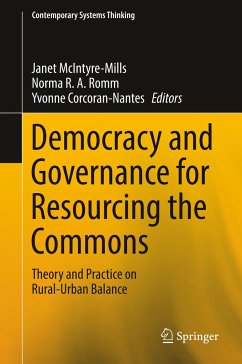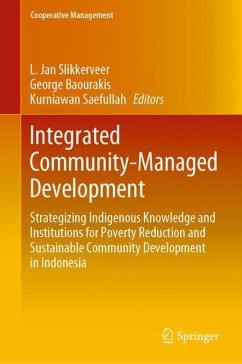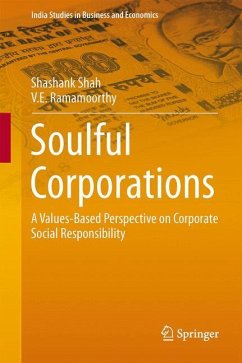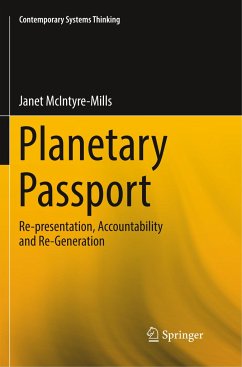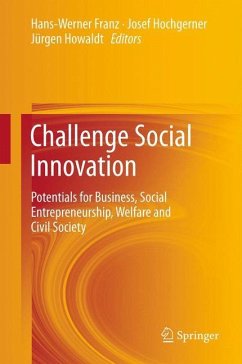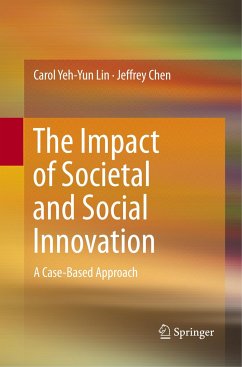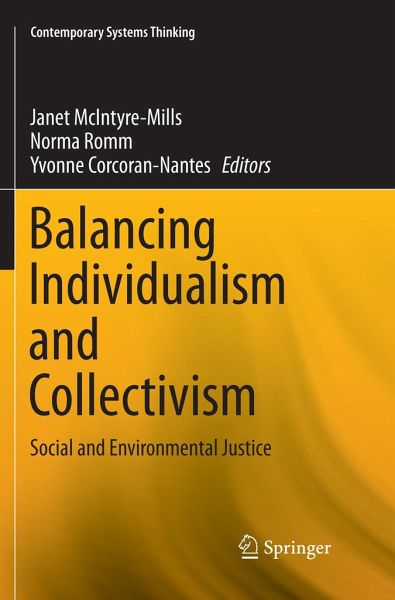
Balancing Individualism and Collectivism
Social and Environmental Justice
Herausgegeben: McIntyre-Mills, Janet; Romm, Norma; Corcoran-Nantes, Yvonne
Versandkostenfrei!
Versandfertig in 6-10 Tagen
76,99 €
inkl. MwSt.

PAYBACK Punkte
38 °P sammeln!
This book addresses the social and environmental justice challenge to live sustainably and well. It considers the consequences of our social, economic and environmental policy and governance decisions for this generation and the next. The book tests out ways to improve representation, accountability and re-generation. It addresses the need to take into account the ethical implications of policy and governance decisions in the short, medium and long term based on testing out the implications for self, other and the environment. This book recognizes the negative impact that humans have had on th...
This book addresses the social and environmental justice challenge to live sustainably and well. It considers the consequences of our social, economic and environmental policy and governance decisions for this generation and the next. The book tests out ways to improve representation, accountability and re-generation. It addresses the need to take into account the ethical implications of policy and governance decisions in the short, medium and long term based on testing out the implications for self, other and the environment. This book recognizes the negative impact that humans have had on the Earth's ecosystem and recommends a less anthropocentric way of looking at policies and governance. The chapters discuss the geologic impact that people have had on the globe, both positive and negative, and brings awareness to the anthropocentric interventions that have influenced life on Earth during the Holocene era. Based on these observations, the authors discuss original ideas andcritical reviews on ways to govern those who interpret the world in terms of human values and experience, and to conduct an egalitarian lifestyle. These ideas address the growing rise in the size of the ecological footprints of some at the expense of the majority, the growth in unsustainable food choices and of displaced people, and the need for a new sense of relationship with nature and other animals, among other issues.
The chapters included in Balancing Individualism and Collectivism: Social and Environmental Justice encourage readers to challenge the sustainability agenda of the anthropocentric life. Proposed solutions to these unsustainable actions include structuralized interventions and volunteerism through encouragement and education, with a focus on protecting current and future generations of life through new governmental etiquette and human cognizance.
The chapters included in Balancing Individualism and Collectivism: Social and Environmental Justice encourage readers to challenge the sustainability agenda of the anthropocentric life. Proposed solutions to these unsustainable actions include structuralized interventions and volunteerism through encouragement and education, with a focus on protecting current and future generations of life through new governmental etiquette and human cognizance.



